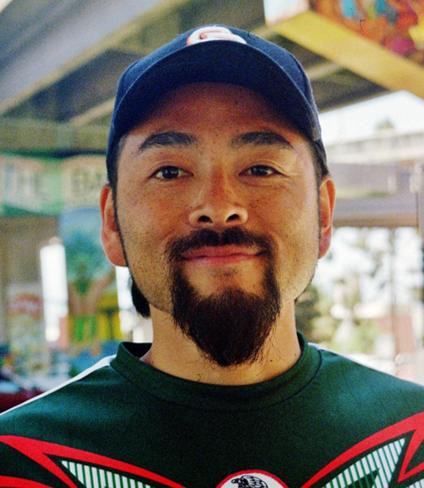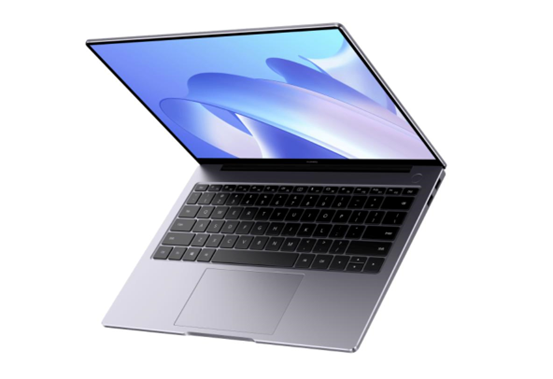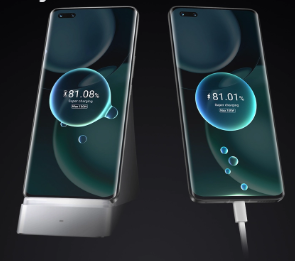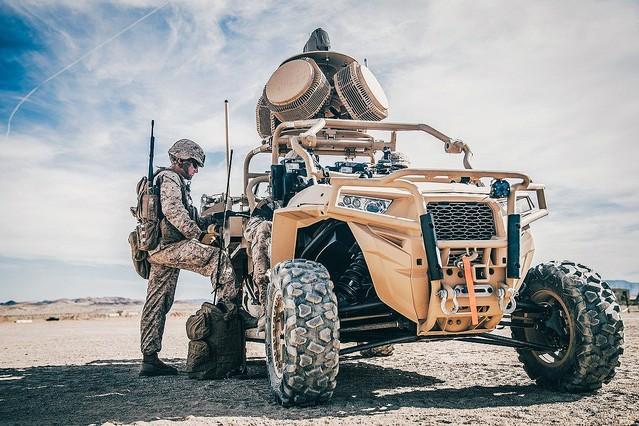Dots for Carlos Oba | Aiming for a world where everyone is online The challenge of building an Internet network on the last mile of the African continent
What inspired you to travel the world and decide to start a business in Africa? There are currently few startups targeting the lives and issues of rural areas where most people live. We asked Mr. Carlos Oba, who started Dots for Inc., which is developing services in West Africa after starting a startup that rents LED lanterns in rural East Africa, about the present and future prospects of rural Africa.Carlos Oba Co-founder and CEO of Dots for Inc. Engaged in global new business development and management including Africa at Amazon, Recruit, WASSHA, C Channel, etc. Contributed to improving top line and productivity at Amazon. Leading the Thailand and Indonesia business as C Channel's overseas business executive officer. In the last two years, he led the launch of a motorbike taxi hire service as WASSHA's new business manager. Obtained MBA from Univ. of California, San Diego, USA. Active backpacker who has traveled to nearly 100 countries.
*In the "Founding Techo" where I am writing this article, more detailed information is also explained in the thick "Founding Techo / Printed Edition". You can get it for free, so please order it.
Contents of this article
My mother's death, and the heartbreaking land "Africa" that I arrived at at the end of a long journey
-Please briefly introduce yourself.Carlos: I grew up in the countryside of Ibaraki until I was in my mid-twenties, and moved to Tokyo to change jobs. Even after I moved to Tokyo, I lived a lazy life without any long-term prospects. At the time, I didn't speak any English, and I had no idea that 20 years later I would be starting a business in Africa.
The reason for the change was the sudden death of my mother. All of a sudden it changed here. If my mother hadn't died, I might still be living day to day.
My mother's death has two effects.
One is what you think when you die. Many times she wondered what her mother thought before she died, and she wondered what she would think at the end of her life.
The other thing is why were we born? , I thought about something like Chuunibyou. Thinking about the meaning of my mother's life, thinking about the meaning of my birth, I came to the conclusion that I had to prove my existence.
One of the company's Core Values, "Prove your value for the world," is the expression of that thought.
After that, I jumped into new worlds and absorbed them so that I would have nothing left to do before I died. I have traveled around the world to learn things I didn't know, such as traveling to nearly 100 countries as a resident and backpacker, and I am still traveling to start a business in Africa.
―Why did you decide to set up your business base in Africa, especially in rural areas?Carlos: I have traveled to nearly 100 countries as a backpacker and still live across borders by land, especially in the countryside of developing countries. In this day and age, you can get information on the Internet, but when you actually go to the site and see it, it's completely different. The information on the internet is only said to be stereotyped or impact-oriented, but in reality, people who are not different from us live in different languages and customs. I was moved by that fact.
In 2013, I lived in the city of Cairo, in the middle of an Egyptian coup, in a room share with Egyptians for several months. When I was driving north in a rental car in northern Argentina, I picked up an Indio grandfather who was hitchhiking. In Cuba, I spoke with a young Cuban who looked coldly at the people who gathered for the egg distribution. . I had many more encounters.
The world is big. Knowing that made me want to know more, and I thought that if my involvement had even the slightest positive impact on those people, that would be "Prove your value for the world."
In my previous job, I traveled around Tanzania all the time. I was trembling in my heart that I was going to live, and decided to start a business. (This appears in another Core Value of our company, “Shake your heart.”)
―What specific challenges are you facing in rural Africa today? What do you consider to be the most critical challenges? What kind of impact do you expect your service to have in order to solve this problem?Carlos: There aren't many people who think of Africa as "I don't have enough food to eat today and I might not be able to survive tomorrow" (although there are of course). . Most people live happily every day.
However, we live in various inconveniences such as no electricity, no access to clean water, and no internet. And above all, information and opportunities are scarce. Although I was born in a village and completed my life there, and went out to neighboring towns, the opportunities and information I could obtain in towns were limited. I don't even have an internet-connected device, so I don't even know what the opportunities are in the first place. I think that's the biggest problem. For example, even when selling agricultural products that have been cultivated for a long time to a wholesaler, they will be sold at a bargain price because they do not know the transaction price in the city, and the person himself cannot judge whether the price is bargained.
If you can access information on the Internet through our service, the world will literally expand and you will have more options. Aside from what you can and can't do, you can move towards what you can do. I believe it will be the trigger.
Change Africa's Future with the Development of Information and Communication Networks
-Please tell us about the spread of the Internet and smartphones throughout Africa and in rural areas.Carlos: Internet penetration is said to be about 35% in Africa as a whole, but it seems that the breakdown is mostly made up of urban dwellers with large populations. The same is true for smartphones. Although the penetration rate of smartphones throughout Africa is increasing year by year, it is still not very high at the moment, and I think that most of the penetration is centered in urban areas.

Africa's development of telecommunications networks and the drop in smartphone prices have pushed the number of smartphone owners higher than before. Manufacturers in China and India have released cheap smartphone terminals for Africa, and the average price in 2014 was 160 dollars, but in 2018 it has decreased to 90 dollars, currently the cheapest smartphone It can be purchased starting at $50.
On the other hand, when we surveyed local rural areas in African countries, only about 3% of the population over the age of 15 in the village possessed a smartphone, so it cannot be said that it is still widespread. yeah. Many residents in rural areas find it difficult to buy a smartphone for $80-$120 in bulk, and many of them cannot connect to the internet as long as they live in the village where they purchased it. is. Mobile communication network coverage is provided in the core towns and along the main roads, but the connection deteriorates as soon as you leave the town or the main roads. Even when I actually go around the villages and measure the speed at the spots where the villagers say they are connected, the speed is about 10kbps, and I can only connect to the extent that I can manage to exchange text messages. Not available. If you can only use the normal voice call (telephone) function, there is not much difference between a mobile phone (feature phone) that can be purchased for about 10 to 15 dollars, so you do not buy a smartphone. Infrastructure is not maintained because there are few people who have it. I think that the current situation in rural areas is that there is a negative loop in that there is no incentive to own a device because it is not connected.
However,The income of rural residents is rising and the price of smartphones is dropping further. I feel that there is potential for explosive spread.
―What is the penetration rate of electricity in Benin (rural areas) in West Africa? There is an image that the electricity bill is also high. Major regions in Africa are said to have a renewable energy utilization rate of 80% or more, but is Benin the same?Carlos: In Benin, electricity is not yet widespread in rural areas, and kerosene lamps are often used as light sources.
Since mobile phones (smartphones and feature phones) need to be charged, households in each village that have installed solar panels provide charging services for about 20 yen. This is the same situation in Tanzania and Nigeria, and the price range is about 20-25 yen. It is operated by leaving the phone at the charging shop for several hours, and the charging shop charges the mobile phone with the electricity generated from the solar panel.
By the way, it is interesting that solar panels are rarely used in neighboring Nigeria. The reason for this is that there seems to be an image of inferior goods in the early days when solar panels started to spread, and the reason is that solar panels are considered to be expensive in the end because they break down quickly. Instead, they often use gasoline-powered generators.
Solar panel = $130, generator = $200-400 + gas cost, solar panel seems more reasonable, but at present, solar panel itself is not widely distributed in Nigeria. not. I find it interesting that there are differences between the rural areas of Benin and Nigeria, even though they are neighboring countries.
― Why did you choose the form of a distributed wireless network as the network communication network?Carlos: "decentralized" is a keyword in Africa, where the infrastructure is not well developed to begin with.
In particular, the conventional centralized method of making a large initial investment to build infrastructure is not cost-effective in rural areas where incomes are lower the further you go, and I think that the current situation is that it is difficult to achieve a sustainable service because the maintenance cost of the service to a remote location is also enormous.
On that point, decentralized services with low initial investment and no need to consider the distance from the center can be the first choice in a vast Africa with little conventional centralized infrastructure. It is possible.
For example, in a country where the government has little progress in infrastructure development of power transmission lines, the government has a policy of distributing solar panels to each household instead of building power plants and power grids from now on. I believe there is a chance it will be taken.
Even with regard to communication networks, as the infrastructure is developed from the urban areas, the diffusion will progress rapidly at the first stage, but as the urban areas are fully covered and the rural areas will gradually spread, Prevalence will decline. In fact, even in developed countries, about 10-20% of the population is left behind because Internet network infrastructure has not been developed due to profitability issues.
―The development of 6G is already underway in Japan, and attention is focused on the decentralization and sophistication of the network topology that accompanies it. In the future, will your company's d.Carlos: Regarding the development of Africa as a whole, I think it will be different from the development of developed countries where individual economic power is relatively high. If the poor economic situation of the people living in Africa is not improved, it will not follow Japan's growth, and may undergo its own evolution. We aim to create a world that is connected to the Internet in rural areas, increase opportunities with the infrastructure, and aim for a future where income increases and living in rural areas eliminates the inconvenience and disadvantages.
Get to know the local area yourself, enter the local area, and open up together with the local area
- It takes a lot of time, money, and effort to set up a large number of mesh points in the vastness of Africa. I think it will take. I would like to hear about your specific installation plans. Carlos: As we create connection points on a per-village basis, relationships with villagers will become more important. In Africa, where intra-regional ties are extremely strong, it is all about creating a service that is supported by the people of the village where it will be introduced, and with that support, it will be easier to expand to neighboring villages I think mark>. In parallel with this bottom-up expansion, we believe that if we can establish firm roots in the market, including the top-down method of reaching out to the government, we will be able to expand naturally.
―Does your work experience and personal connections in your previous job still apply to your current business? .Carlos: I worked with the co-founder of Dots for in my previous job in Tanzania. There is a common language inside, which is a very big strength.
And, as for the project itself, based on my previous experience in Tanzania, I can see the commonalities and differences in what is happening in Benin, West Africa, so I can speed up getting closer to the correct answer. I have a real sense that our business model and profit structure have been greatly influenced by our experience at our previous job.
―African region where leapfrog phenomenon is already occurring in the financial sector. In what field do you expect the next leapfrog to occur as your network spreads?Carlos: I think the reason why fintech using new technology is spreading so much is because it fits the challenges of Africa. So, I think that by going online in rural areas, FinTech, which is based on the premise of online and digital, will expand to rural areas.
In addition, in rural areas where the transportation network is underdeveloped, I think drone transportation will be a major means of logistics depending on what is being transported. Startups such as Zipline have been born here, and I feel that they are moving toward practical application.
―Although it is said that mobile money services have led to a sudden increase in new businesses in the African region, on the other hand, there is also a situation in which the development of infrastructure essential for business, such as logistics and transportation, has not caught up. Is your company thinking about any new business development or initiatives in response to these? ?Carlos: Transportation and logistics exist as big challenges, but the reality is that goods and people move. Currently, this part is operated by human connection, but there are methods to improve efficiency by matching and tracking traffic and logistics.
Although there are problems with profitability and needs, there are many things that can be improved by technology. We believe that this will help us achieve our goal of eliminating restrictions in departments.
―What do you expect from the African region in the future?Carlos: On the African continent, as the population continues to grow, especially in rural areas, I believe there is great potential in rural areas as well as urban areas. I would like to create a world where Africa will become a driving force of the global economy and become an aspiration.
―Finally, please give a message to the readers.Carlos: Africa is attracting attention as the last frontier on earth, but I have the impression that it is still limited to opportunities in urban areas.
Africa is a vast country, stretching 8,000km from north to south and 7,400km from east to west. When I say 7,400km, I think it feels strange to call a region as far away as Moscow from Tokyo. And even if we look only at one country, there is a completely different world spreading between urban areas and rural areas, and rural towns and their surrounding rural areas.
We were also trying to do business in Benin and Nigeria, which we had never been to before our founding. If the business is going well in Japan, it should be going well in Cambodia, too." After that, we were convinced of the issues in Benin and Nigeria and the value we could provide, and established a local subsidiary and released products.
I would like people to get not only information from books and the Internet, but also real information that they have seen and heard from the actual places. I would like you to step into the depths of Africa once.
-Thank you for today. In the founding notebook, many stories of failures of entrepreneurs and managers and episodes leading to business expansion are posted. We deliver free of charge. Please use them together. Related article Timee, Rei Ogawa | More than 3 billion yen raised in 2 years! Exclusive Interview Gaia Link Hideki Ishii|What is the ``new civilization blooming'' that the 3D virtual space metaverse brings to business?(Interview cooperation: Dots for Inc. Co-Founder and CEO Carlos Oba) (Edited by Founding Techo Editorial Department)
Articles that everyone is reading in this category 1st Entrepreneur Interview Brighton Teruyo Ban | I want to create a "postpartum care facility" that does not exist in Japan! Former CA Entrepreneur's Zero-to-One Startup Story 2nd Place Entrepreneur Interview cotobox Kazuyasu Gomi | What kind of rights are trademarks? Should I take it even if it's not a big company? Interview with Patent Attorney Entrepreneur 3rd Place Entrepreneur Timey Rei Ogawa|Financing over 3 billion yen in 2 years! Exclusive interview







